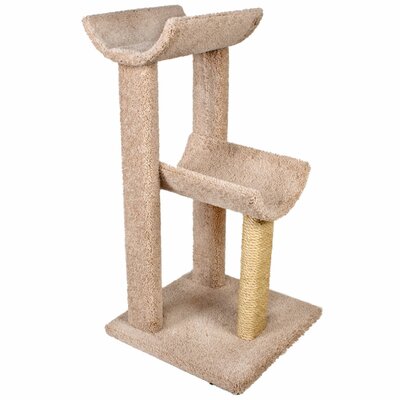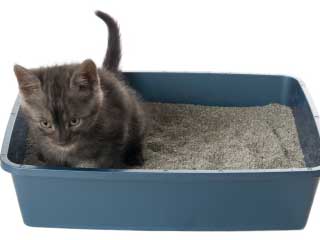Environment is Important
Inspired by upcoming events I thought I would put together a fun list of things you should consider getting before bringing home a fuzzy fur-baby (kitten specifically).
Most kittens are potty trained by 8 weeks and should not be separated from their mother or siblings before this time - if offered a younger kitten decline for the sake of the baby if you can help it. They are still learning to socialize and take cues from their mother and siblings, you also don't want to cause undue stress issues with you new family member.
Things you will need:
- Cat Carrier - for emergencies, transportation, and vet visits.
- Personally I do not like the soft carriers, the hard ones are a much safer option for your pet, they are also sturdier and easy to clean. Here is a great article about picking out a good one!
- Larger is not necessarily better. If the carrier is too big then its awkward for you to carry and the cat ends up being bumped and slid around inside. Cats also feel safer when their back is up against something.
- The carrier should typically be one and a half times the size of your cat.
- Litter box - covered or non-covered it's your choice!
- I recommend a good stain & odor remover - sometimes kittens forget where their litter box is and you don't want them picking a corner of your room thus it is important to remove their urine scent in its entirety. I use: Nature's Miracle Advanced Formula
- Cat Litter - kittens sometimes ingest litter, do not use clay litter until the kitten is closer to 6-8 months in age. Young kittens learn by digging around and occasionally playing in their box. So stick to something natural. For example I have our kitten on: Nature's Miracle Natural Cat Care Litter its a corn based litter, dust free, and forms gentle clumps but won't harm your kitten if accidentally ingested.
- Cat Tree or Scratching Post
- Cat Bed or Blanket - you want them to have a spot that is designated as theirs that is warm and cozy, kittens can get cold easy.

- Water and Food Dishes - always use stainless steel or ceramic, many cats have plastic allergies and develop cat acne on their faces from plastic dishes, plastic also hold in germs due to its porous nature.
- Toys! - Every cat enjoys something different have fun getting to know your little buddy!
- Good Food - See my previous post for picking out a food.
- Flea Medication - only use vet approved meds!
- Frontline
- Advantage
- & Activyl are all safe to use on cats/dogs
Hartz - is extremely unsafe! Many animals have been put into the emergency room with seizures and vomiting after having been medicated with Hartz.
If you must bathe your pet (most cats unless extremely dirty do not need bathes) use preferably an all natural and gently shampoo. Shampoo will kill fleas and make them easier for you to pick off of your animal, store bought flea shampoos are an unnecessary expense and you should always talk to your vet before using such a product on your pet or kitten.
Remember kittens are almost always born with worms and many also have ear mites. Your veterinarian can confirm these parasites in your kitten and can treat them for you or instruct you to a safe over the counter drug you can purchase at a local pet store (always check with your vet first!) just because it is sold in a pet store does not make it a safe product.
Kittens must be at least 8 weeks old to be de-wormed or given medication for ear mites, if you kitten has a bad infestation call your vet for approval to do it early.
*Ear mites are extremely contagious to other animals in the house (not humans) if your kitten has ear mites your whole furry family must also be treated.*

No comments:
Post a Comment